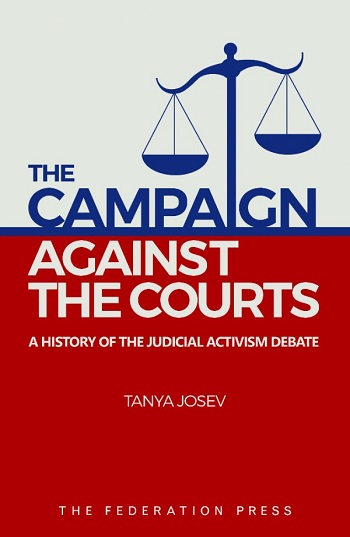
The term ‘judicial activism’ is seemingly ubiquitous in Australia and the United States today. Prominent public figures, from politicians to cardinals, commentators to business executives, have used this terminology to condemn superior courts and certain judicial outcomes. In Australia, High Court decisions on matters such as native title, for instance, Mabo, property law and the interpretation of Australian history; constitutional rights; the law of negligence and migration law have been attacked in some quarters as being ‘undemocratic’ and ‘activist’, and as exemplifying the growing elitism of higher court judges. In the United States, decisions relating to reproductive rights, for instance, Roe v Wade, gun laws, school prayer and the interpretation of American history have also been criticised on this basis. Yet as the judicial activism critique is increasingly adopted by the popular media, many lawyers and judges are hesitant to engage with the terminology, seeing it as nothing more than an empty pejorative.
What is judicial activism? What are the origins of the terminology? Who has been accused of practising activism? This book provides a history of the term ‘judicial activism’, from its inception as a historian’s catchphrase in the United States in the 1940s, to its nursery years in the universities, and finally, to its more recent manifestation in both the Australia and the United States as part of election campaigns and the politics of anti-elitism. Covering diverse topics such as constitutional scholarship, the ‘history wars’ in Australia, and United States Presidential campaigns, The Campaign Against the Courts also charts the migration of the debate over judicial activism from the United States to Australia over the past 25 years.
For those interested in law, politics and history, The Campaign Against the Courts provides a narrative account of one of the most controversial topics in law-making today.